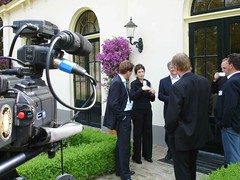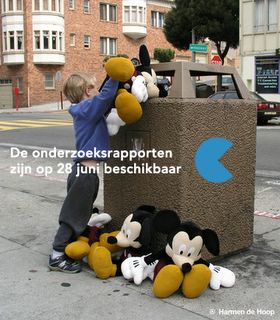Global warming screwed the earth 55 million years ago too. They think...
"Cores drilled from the ocean floor reveal an ancient emission of 4500 gigatons of carbon into the atmosphere led to catastrophic global warming
FIFTY-five million years ago the Earth warmed rapidly, the oceans turned acidic and deep-sea creatures died en masse. A massive release of carbon gases has been the prime suspect, but no one was sure how massive. And it wasn't clear just how long the oceans remained acidic.
Now, sediment cores drilled from the ocean floor have revealed that the emission of nearly 4500 gigatons of carbon into the atmosphere led to the catastrophic global warming, and that the resulting acidification of the oceans lasted more than 100,000 years. It serves as a warning and backs up computer models that have predicted similar long-lasting effects if, as seems likely, humans release comparable amounts of carbon dioxide over the next few hundred years. "
New Scientist 15 june 2005






